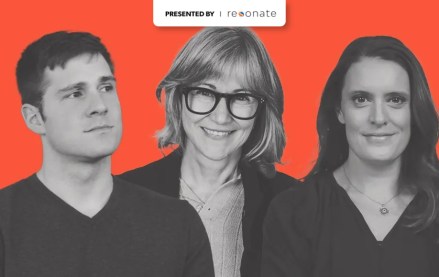‘Programmatic stands for targeted’: Q&A with BuzzFeed’s research and insights vp

After years of eschewing banner ads, BuzzFeed reversed course this summer when it rolled out programmatic advertising across its owned and operated sites. We asked Edwin Wong, vp of research and insights at BuzzFeed, ahead of his panel at Advertising Week New York, about the pursuit of scale, state of branded content and more. Our conversation has been edited and condensed.
BuzzFeed just embraced banner ads. Why, given you have tons of research that shows they’re ineffective?
In the past year or two, we’ve seen that kind of advertising get a lot better. When we think about programmatic, it’s not a standalone product. It’s targeted. It helps an advertiser reach a consumer better. We’re learning along this journey to see how those two can work together.
You’ve done research that focused in part on trying to define branded content. Why did you start there?
When we were talking to advertisers about the concept of branded content, we weren’t sure there was a standard definition. There’s so much more to the concept of what good branded content is.
Branded content has gotten more sophisticated among publishers. What is BuzzFeed doing to stay ahead?
The heart of what we’re building for advertisers is the heart of what we’re building for consumers on the editorial side. We’ve moved from the impression to the expression to action. The action is what’s translating for marketers. Being able to mine the data around this content is what’s going to keep us ahead.
You’ve also done research implying that marketers are using the wrong data and that stories should be targeted. What does that say about the pursuit of scale?
A lot of the foresight of our founders came from Jonah [Peretti] and Ze [Frank] saying, “We’re going to build a piece of content that scales across a bunch of different distribution channels.” Seventy-five percent of what happens for BuzzFeed actually happens on other channels. That sort of scale builds itself. We’re already telling marketers, you’ve got to stop defining people that way. The data we do use to target isn’t the most resonant. It’s the content.
More in Media

Digiday+ Research: Publishers take their focus off events as revenue dips
The percentage of publishers making money from events hit a low as of the first quarter of this year and, as a result, fewer publishers plan on putting a focus on growing that part of their business.

What platforms, brands and agencies hope to get out of the Possible conference in year 2
Year two of Possible is once again being held in Miami Beach, and it will take place from April 15-17 with 3,000 attendees expected to listen to another 200 or so speakers, including Snap’s Colleen DeCourcy, Uber Ads’ Megan Ramm and UM Worldwide’s Matthew Smith.

AI Briefing: Cloud giants’ AI ambitions create new partnerships — and new competitive concerns
Last week, tech companies like Google, Microsoft and Amazon all announced updates more updates for their cloud and AI efforts








